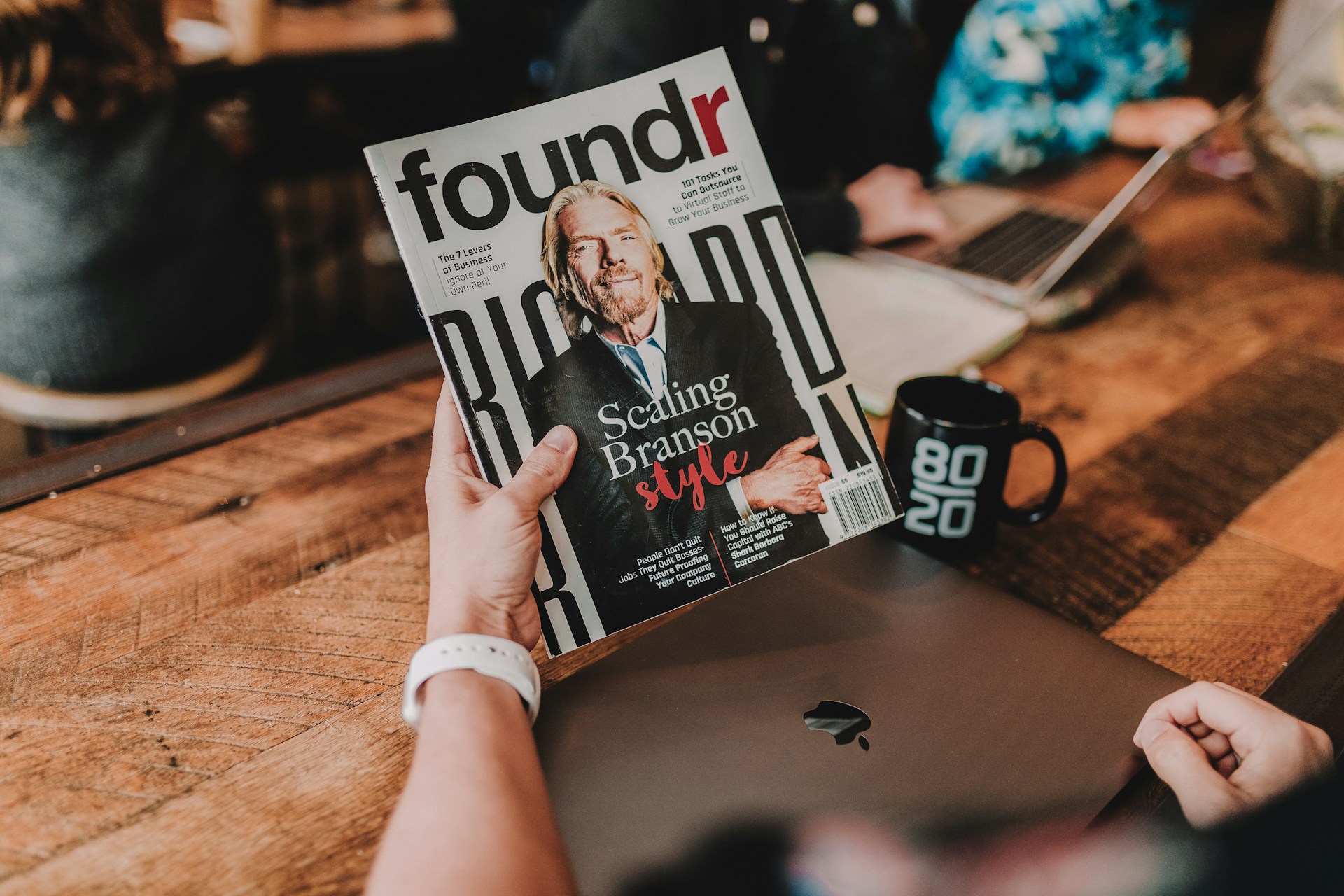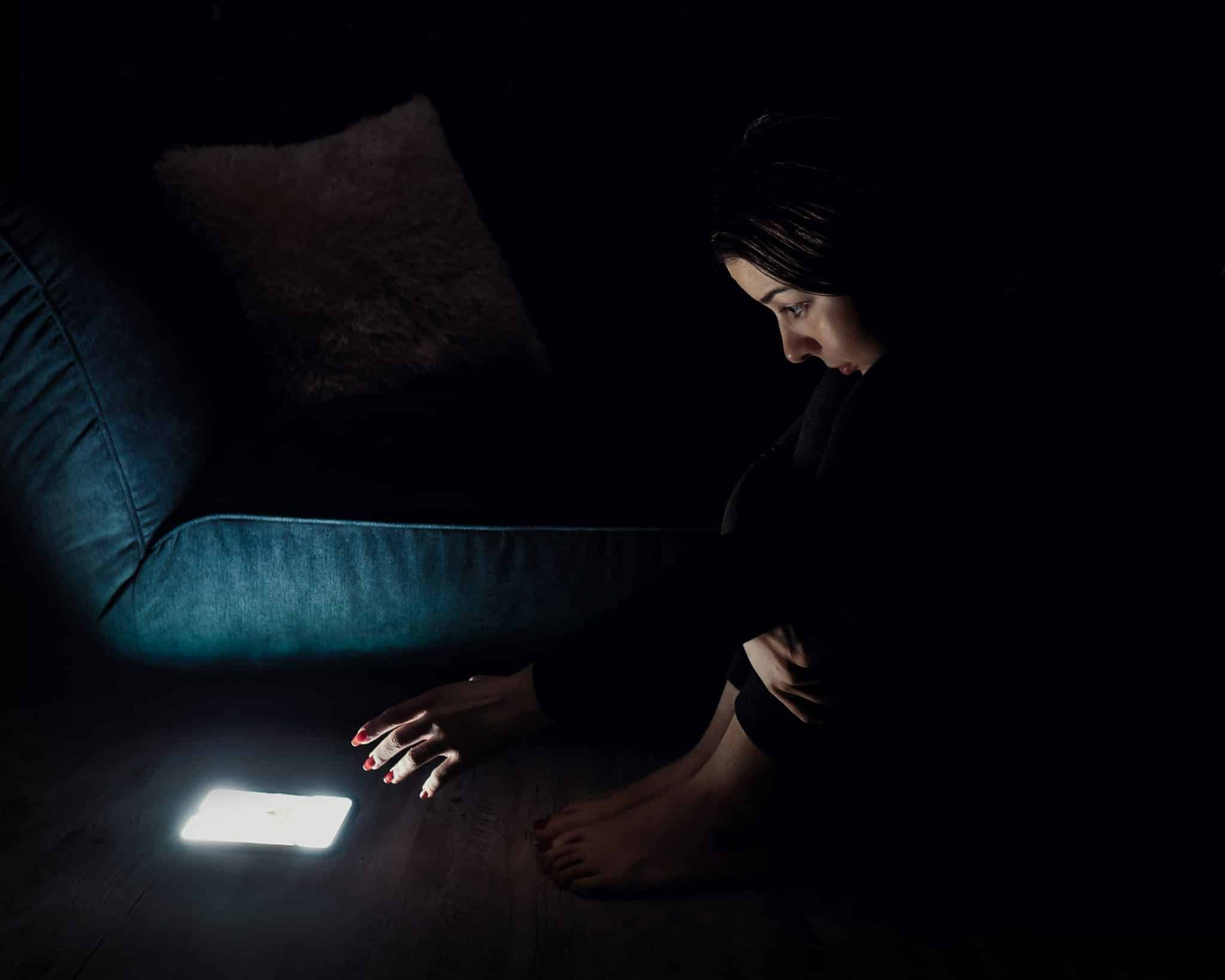Christina Crook on Good Burdens and Living Joyfully in the Digital Age

What happens when technology frees us from the burdens that we don’t want to be rid of?
Writer, speaker, podcast host, and longtime friend-of-Freedom Christina Crook has been studying the relationship between joy and technology for over a decade. Her own battle with digital overwhelm, balance, and values misalignment led her to write the book The Joy of Missing Out: Finding Balance in a Wired World, which examines the connected world through the lens of her own internet fast. The book was a harbinger of the global #JOMO movement and kicked off her ongoing work as a digital mindfulness thought leader, speaker, writer, and host of the JOMO(cast) podcast.
In her latest work, Good Burdens: How to Live Joyfully in the Digital Age, Christina answers the question we’ve all been asking ourselves for the past 18 months: Why did the world take up bread baking during the pandemic?
We were seeking out creative contributions to make meaning in the midst of global upheaval. We learned to play instruments. Checked on neighbors. Volunteered. Planted gardens. Wrote letters. We began noticing and nurturing the relationships and activities that bring meaning and joy. We took up good burdens.
After joining us on the Freedom Matters podcast to chat about these ideas, we were delighted to be able to sit down with Christina to learn more about Good Burdens – and her own journey to tech-life balance.

Firstly, what started it all for you? When did you realize that your relationship with technology was something that needed to be examined, monitored, and even actively sculpted?
It all started more than a decade ago. We’d moved across the country, from Vancouver to Toronto, the year before. It took just one cross-continental flight to shift a lifetime of rich relationships onto the internet. In a short time, “staying in touch” looked like scrolling through people’s posts. The time difference was no longer a problem because I could lurk online at my convenience, any time, day or night. The only problem was that a few of my closest family members were nowhere online, and my contact with them all but evaporated. I was gleaning information and little else.
I felt a flatness growing in me and became deeply curious about what would happen if I completely ditched the Internet. In 2012, I gave it up for 31 days to discover what kind of artist, parent, neighbor, friend I would be without the demands of the digital world.
People apologize when they pull out their phone in front of me! I am not immune to the addictive models of technology – I’m human. I work hard to follow my own advice to pay close attention to what online experiences are life-giving and life-taking.
Your first book, The Joy of Missing Out kickstarted the #JOMO movement online and had you named “the Marie Kondo of Digital” by Harper’s Bazaar. Do feel pressure to uphold such a reputation or do you have days where you binge on Netflix like the rest of us?
People apologize when they pull out their phone in front of me. Phones, tablets, laptops, smartwatches – these are tools, right? I am not immune to the addictive models of the world’s largest tech platforms. I’m human. I work hard to follow my own advice to pay close attention to what online experiences are life-giving and life-taking. Bingeing shows is one of my great joys! (My favorites include Community, Parks and Rec, Call my Agent, and Schitt’s Creek.) Harvard professor, Dr. Ellen Langer, who wrote the book on mindfulness, once told me that it’s possible to watch television mindfully. Hallelujah! I shouted back.

Could you summarize what Good Burdens are and why we need them in our lives?
What happens when technology moves beyond lifting genuine burdens and starts freeing us from burdens that we should not want to be rid of? This is the question Good Burdens explores.
On an average day, you and I spend more time with our digital products and platforms than we do with any single human being. Because of this, we constantly put ourselves in the way of the three sirens of consumerism: comfort, control, and convenience—the drivers of Big Tech, Big Corporations, Big Everything. Over time, they’ve shaped the way we think about relationships, the way we work, create, and even the ways we’re willing to love. But what is the cost of this constant orientation toward comfort, convenience, and control? Over time, these systems constrain what we are willing to do.
You know that the act of creating, of making anything worthwhile—whether it be a family, a resilient mind, a vocation, a marriage, a vibrant neighborhood—doesn’t work like that. There’s nothing efficient or comfortable about it.
At our core, you and I are after one thing: love. But here’s the thing: love is the opposite of control. Laziness is the opposite of love. The way we experience love is through the inconvenient joys of relationships. Warm relationships are our greatest source of happiness and relationships aren’t easy, they’re effortful.
To live joyful lives we must risk trading control for care, convenience for community, and comfort for creative contribution. They are good burdens.
The burdensome part of these activities is actually just the task of getting across a threshold of effort. As soon as you have crossed the threshold, the burden disappears.
And what are you left with then? You are left with joy. It’s what you were made for.
Comfort, control, and convenience, the promises of our tech-obsessed world, aren’t going to get you where you want to go. You weren’t made for a life of passive consumption, you were made for more.
To live joyful lives we must risk trading control for care, convenience for community, and comfort for creative contribution. They’re good burdens.

What is one small shift that you have made about the way you spend your time that had the largest impact on your quality of life?
A simple daily exercise called the Examen.
It’s rooted in a centuries-old contemplative practice, and one of the reasons I know it’s such an effective tool for well-being is that it’s been renamed, repackaged, and repeated with its essential function left intact countless times. It began four hundred years ago as the Examen of Consciousness by Saint Ignatius of Loyola, founder of the Jesuits, and has been called “moving toward and away” by motivational psychologists, “energizing and de-energizing habits” by even more motivational psychologists, and “life-giving and life-taking practices” by spiritually centered leadership and relationship experts.
I call it pursuing joy versus despair.
The Examen is an essential resource you can carry with you every day, helping you choose what to do next and discern the right way to go—toward joy.
Here it is:
Tonight, and every night, before you go to sleep, ask yourself these two questions:
What was the most life-giving experience of my day?
What was the most life-taking experience of my day?
Not yesterday, not when you were a kid, not what you’re worried about tomorrow, but today. You can use whatever language you wish to describe this: I use life-giving and life-taking, but you can say joyful vs. despairing, energizing vs. de-energizing.
However you name it, you are actively separating your experiences into things that, if repeated, if pursued, will move you toward joy, as well as those actions that will move you away from it. And so the hardest part of moving forward, deciding the right thing to do, has already been done.
What do you want? You want joy.

What advice would you give someone who struggles with FOMO (fear of missing out) when disconnecting from their devices?
It turns out that the people flourishing with technology use it in very intentional ways. First off, they use it to serve larger goals. They have a destination. They also have a deep sense of their values. They’re protected from getting pulled off course by social contagion or FOMO, wanting what other people have.
Dr. Pamela Pavliscak discovered that people happiest with technology use it for three primary purposes: Caring, Creativity, and Community – deepening warm relationships in the process. You might say people who are happiest with technology use it to love, to carry good burdens.
It turns out that the people flourishing with technology use it in very intentional ways… They use it to serve larger goals. They have a destination.
As someone who wears multiple hats, how do you prioritize what tasks, activities, or people get your time each day?
Many Creative people – myself included – are not by nature high structure people. We need to work smarter, not harder. After all, we’re not being paid to organize, we are being paid to be creative.
Instead of perfectly organizing everything coming at me, I’ve developed a kick-ass filtration system – catching and organizing only what matters. On Monday, I commit to three top priorities and they take precedence over everything else. I write them on a post-it and check them off as I go. I am a big believer in tracking progress in analog.
When I want to hit a groove on a writing project, I use Freedom’s focus sounds.
What environments are most productive for you?
I wrote a lot of Good Burdens sitting at a beat-up picnic table in the park around the corner from my house and it’s worked wonders for my creativity.
Being out of doors is an essential reminder that I am a small part of an immense world. The stimuli—sounds, smells, and sights—never fail to help me make deeper connections, weaving seemingly divergent thoughts into a cohesive whole. In nature, it all fits together.

What do you do outside of your work routine that helps you stay productive?
I am active in my neighborhood and church and can usually be found cruising around Toronto’s Junction neighborhood on my powder blue bicycle or kicking the soccer ball at the pitch with one of my kids. Being active and engaged in social groups are great sources of joy for me and prioritizing them fuels the rest of the work.
What projects are you currently working on that you are most excited about?
I am most excited about my new program. The JOMO Method™ – a 4 module, self-paced online course that teaches you how to radically reduce your screen time to accomplish your most ambitious goals.
You’ll learn how to develop digital immunity, digitally houseclean all of your devices, and build daily, weekly, and monthly digital habits to keep your tech use focused ONLY on what matters most to you.
The course is designed for creative professionals who want to control their tech and make a more meaningful impact.
Our students come from a wide array of companies and organizations, including start-ups, small and medium businesses, top universities, and Fortune 1000. They’re intelligent, creative, and educated professionals at the front lines of the conflict between technology and well-being. Like you, they live it, feel it, and want to take action in their lives.
The JOMO Method is already supporting leaders working at Oxford, Shopify, Wattpad, Adobe, Gimlet Media, and more. I’d love for you to join us!
Click to join the waiting list for The JOMO Method

Good Burdens is available to buy now, online, and in bookstores. To keep up-to-date with Christina’s projects, follow her on Instagram, Facebook, and Twitter, and subscribe to the JOMOcast.


